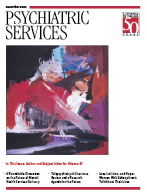Behavioral Medicine and Women: A Comprehensive Handbook
The strength of this comprehensive handbook is its contribution to expanding the traditional boundaries of the topic of women's behavioral health. The volume editors note that when they published a book on behavioral medicine for women in 1988, relevant research findings about women's health were sparse. The chapters in that volume were written by "brave souls who argued against mind-body dualism," pointed out gaps in our knowledge, and lobbied for research and prevention programs. For this new volume, they say, "Areas about which nothing could have been said less than a decade ago have spawned far more subtopics, data, and chapters than we or our associate editors could ever have anticipated."
To summarize this new knowledge, to put it in context, and to prescribe needed research, the editors include nine section overviews. Annotated reference lists follow these overviews as well as the 141 short chapters. The book is comprehensive and theoretical, yet it is also accessible for a quick answer to a clinical question. Even for mental health clinicians or physicians with expertise in women's behavioral health, the broad choice of applicable subject matter offers new and useful information about the "rich interaction between biology and context."
The field has integrated unique issues for women from the domains of life-course development, coping, prevention, and health policy. As a consultation-liaison psychiatrist, I especially appreciated the section on stress and coping. It not only describes factors that detract from health, such as marital conflict, hostility, and type A behavior pattern, but it also considers strengths that promote and protect health, such as hardiness, resilience, optimism, and social support.
Chapters about physiological disorders such as heart disease, osteoporosis, and immune system problems emphasize recent findings about characteristics specific to women and the interactions of behavioral and psychosocial components of these disorders. Psychological disorders such as anxiety, borderline personality, and posttraumatic stress disorder and their linkage to both physical disorders and social dysfunction are covered in a companion section.
Body image and substance use disorders, which have a special impact on women's physical, emotional, and social well-being, are the focus of another section. The chapters on life-course perspectives address the critical role of reproductive events in the phases of women's lives. Not only do these events hold intense meaning for individual women and their families across generations, but recent studies are suggesting that stress during reproductive transitions can affect physiologic variables such as bone density and blood lipid levels and that these effects are due to gonadal estrogen production rather than adrenal systems changes.
A section on reproduction and sexuality reviews findings about the experience of such events as abortion, menopause, and sexual abuse as well as phenomena such as infertility, lactation, and aging. Research on the roles of stress and biological variables in disorders such as pelvic pain, postpartum depression, and premenstrual syndrome is examined.
The section on gender, culture, and health addresses the effect on health of membership in diverse ethnic groups and occupancy of diverse social roles. The social role of the woman physician appears to affect patients' satisfaction with their health care. Women physicians' practice style of spending more time than men on prevention and on psychosocial issues seems related to this outcome.
Behavioral Medicine and Women covers a great deal of ground in a comprehensive and useful way, and it should be of interest to a broad readership.
Dr. McCartney is executive associate dean for medical education and professor of psychiatry at the University of North Carolina School of Medicine in Chapel Hill.



